第16章 BOOK I.(15)
"Rain-making is another subject removed from the uncertainties,and has become an absolute science.We produce clouds by explosions in the atmosphere's heights and by surface air forced by blowers through large pipes up the side of a mountain or natural elevation and there discharged through an opening in the top of a tower built on the highest part.The aeriduct is incased in a poor heat-conductor,so that the air retains its warmth until discharged,when it is cooled by expansion and the surrounding cold air.Condensation takes place and soon serves to start a rain.
"Yet,until the earth's axis is straightened,we must be more or less dependent on the eccentricities of the weather,with extremes of heat and cold,droughts and floods,which last are of course largely the result of several months'moisture held on the ground in the form of snow,the congestion being relieved suddenly by the warm spring rains.
"Medicine and surgery have kept pace with other improvements--inoculation and antiseptics,as already seen,rendering most of the germ diseases and formerly dreaded epidemics impotent;while through the potency of electrical affinity we form wholesome food-products rapidly,instead of having to wait for their production by Nature's slow processes.
"The metric system,now universal,superseded the old-fashioned arbitrary standards,so prolific of mistakes and confusion,about a century ago.
"English,as we have seen,is already the language of 600,000,000people,and the number is constantly increasing through its adoption by the numerous races of India,where,even before the close of the last century,it was about as important as Latin during the greatness of Rome,and by the fact that the Spanish and Portuguese elements in Mexico and Central and South America show a constant tendency to die out,much as the population of Spain fell from 30,000,000to 17,000,000during the nineteenth century.As this goes on,in the Western hemisphere,the places left vacant are gradually filled by the more progressive Anglo-Saxons,so that it looks as if the study of ethnology in the future would be very simple.
"The people with cultivation and leisure,whose number is increasing relatively to the population at each generation,spend much more of their year in the country than formerly,where they have large and well-cultivated country seats,parts of which are also preserved for game.This growing custom on the part of society,in addition to being of great advantage to the out-of-town districts,has done much to save the forests and preserve some forms of game that would otherwise,like the buffalo,have become extinct.
"In astronomy we have also made tremendous strides.The old-fashioned double-convex lens used in telescopes became so heavy as its size grew,that it bent perceptibly from its own weight,when pointed at the zenith,distorting the vision;while when it was used upon a star near the horizon,though the glass on edge kept its shape,there was too much atmosphere between it and the observed object for successful study.Our recent telescopes have,therefore,concave plate-glass mirrors,twenty metres in diameter,like those used for converging the sun's rays in solar engines,but with curves more mathematically exact,which collect an immense amount of light and focus it on a sensitive plate or on the eye of the observer,whose back is turned to the object he is studying.An electrical field also plays an important part,the electricity being as great an aid to light as in the telephone it is to sound.With these placed generally on high mountain peaks,beyond the reach of clouds,we have enormously increased the number of visible stars,though there are still probably boundless regions that we cannot see.
These telescopes have several hundred times the power of the largest lenses of the nineteenth century,and apparently bring Mars and Jupiter,when in opposition,within one thousand and ten thousand miles,respectively,so that we study their physical geography and topography;and we have good maps of Jupiter,and even of Saturn,notwithstanding their distance and atmospheric envelopes,and we are able to see the disks of third-magnitude stars.
"It seems as if,when we wish any particular discovery or invention,in whatever field,we had but to turn our efforts in its direction to obtain our desire.We seem,in fact,to have awakened in the scenes of the Arabian Nights;yet the mysterious genius which we control,and which dims Aladdin's lamp,is the gift of no fairy godmother sustained by the haze of dreams,but shines as the child of science with fadeless and growing splendour,and may yet bring us and our little planet much closer to God.
"We should indeed be happy,living as we do at this apex of attained civilization,with the boundless possibilities of the future unfolding before us,on the horizon of which we may fairly be said to stand.
"We are freed from the rattling granite pavement of only a century ago,which made the occupant of an omnibus feel like a fly inside of a drum;from the domination of our local politics by ignorant foreigners;and from country roads that either filled the eyes,lungs,and hair of the unfortunates travelling upon them with dust,or,resembling ploughed and fertilized fields,saturated and plastered them with mud.These miseries,together with sea-sickness in ocean travelling,are forever passed,and we feel that 'Excelsior!'is indeed our motto.Our new and increasing sources of power have so stimulated production and manufacturing that poverty or want is scarcely known;while the development of the popular demand,as a result of the supplied need,is so great that there is no visible limit to the diversification of industry or the possibilities of the arts.